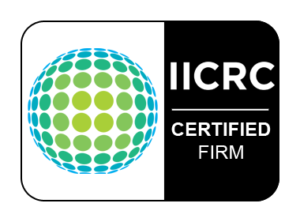Can you sell your home with mold / asbestos / lead?
Can you sell your home with mold / asbestos / lead?
If you are considering selling your home it can be both exciting and frustrating. But you as a seller and your potential buyers should educate yourself on real estate law here in Ontario and how certain Provincial of Ontario real estate regulations will affect both you and them. In particular, it’s important to understand the relationship between seller disclosures and property defects, such as mold, asbestos, (https://mapleleafmold.ca/i-think-ive-been…osed-to-asbestos/) and lead paint / pipes, (https://mapleleafmold.ca/kids-and-lead-poisoning/)
Common Disclosures
Here are some common disclosures you should keep your eye out for. These include disclosure of environmental hazards like mold / asbestos / lead disputes with the property listed for sale, (including the presence of mold / asbestos / lead in any of the building materials and the presence of lead in paint), and disputes with neighboring buildings.
Disclosure Requirements in the Province of Ontario
The first question you’ll need to answer is, “What information is a seller required to disclose?” Ontario divides these into two categories of defects that must be called out to potential buyers. The first category covers patent problems, which are defects that are visible and noticeable to a home inspector or buyer. The second category covers latent problems or problems that would not be readily apparent to someone inspecting the home. In Ontario, the seller is not required by law to disclose any patent issues, only latent ones. The rationale here is that since anyone can see a patent problem, they don’t need to be specifically called out.
When and How Disclosures Are Made
The next question to answer is, “When and how are seller disclosures made?” Sellers are required to provide the buyer with a Seller Property Information Statement (SPIS) listing known latent defects that could affect the safety of those who live in the house, or its structural integrity. This can be done after the buyer and seller have reached an agreement but must be done before closing.
Seller responsibilities
If you are considering selling your home and you know there was or is a mold / asbestos / lead problem in the home you must disclose it if it is a latent problem, (problems that would not be readily apparent to someone inspecting the home). This disclosure is a requirement in the Province of Ontario and the seller doesn’t do so, they could face legal consequences.
The responsibility for the seller is disclosure. If there’s a defect in the property that would affect the value or a buyer’s opinion of the value, such as mold, then to make sure you don’t get sued, you need to disclose.
If you don’t disclose there could be potential for a lawsuit as both mold / asbestos / lead are considered a health and safety under local law and the seller, knowing about it, didn’t disclose it.
As a homebuyer, you want to make sure the seller is taking the right steps with real estate disclosures. This includes disclosing the presence of mold / asbestos / lead now or in the past. Carefully review the disclosures and look for anything related to mentions of mold / asbestos / lead.
If there is an environmental issue, you may have room to come to an agreement that it be fixed before you purchase the home. The seller would then typically be responsible for fixing the cause of the mold / asbestos / lead issue. A mold / asbestos lead inspection could be helpful if you want to see the extent of the growth and find the source / location of the environmental contamination.
If the owner of a home is selling it themselves without a realtor, they might not be aware of everything they need to disclose, including mold / asbestos / lead issues. Additionally, while self-sellers are still legally obligated to disclose any issues with the home they’re aware of, unfortunately, some might not be forthcoming. This could be a disadvantage for you because there might be mold or asbestos / lead present and you wouldn’t know about it. Do your due diligence with these types of transactions and get an environmental inspection to identify telltale signs of mold / asbestos / lead.
You may need to fix any mold / asbestos / lead issues, including the cost for remediating / abating and any needed repairs. Alternatively, they might offer to reduce the home price and have you resolve the issues.
Buyer considerations
As a homebuyer, it makes sense to be cautious about homes with mold / asbestos / lead. Any issues with these three contaminants should come up in a seller’s disclosures, but you also have to look out for your own interests. Be thorough when searching through homes for signs of mold / asbestos / lead but during this review do not touch any suspected materials. Check out hot spots like the attic and basement, as well as bathrooms but the whole home, (if built prior to 1985), should be reviewed with a suspicious eye.
If any mold / asbestos / lead is present, it’s time to have a discussion with the seller about how to move forward. It’s common to have real estate contingencies in place, which could include an inspection contingency. With this type of contingency, you might be able to cancel your contract if the environmental inspection reveals an environmental hazard. But even if you’ve decided to buy a home with any of these three contaminants, if you’re planning to secure a mortgage, your lender may not be willing to finance the home until the mold / asbestos / lead is treated and removed.
Environmental remediation / abatement can cost thousands of dollars and would typically be the responsibility of the seller. But if they don’t want to handle it, they may offer you a credit on the sale. If the home is being sold “as-is,” including an existing mold / asbestos / lead problem, make sure the price of the home reflects the issues you’ll end up having to take care of.
Knowing your rights as a homebuyer is important in any scenario, but especially if a house has pre-existing issues, such as mold / asbestos / lead. Working with an experienced environmental inspection / abatement team like Maple Leaf Mold Inc. who knows how to professionally and safely remove environmental problems is the recommended option for homebuying success
Remedies for Concealed Defects
Some buyers are understandably concerned about finding defects after the sale of a property. Note that a seller is only responsible for disclosing defects they’re aware of, (latent issues). Depending on how long they’ve owned the property, it’s possible there will be some they don’t know about.
If you believe there was information that wasn’t disclosed that the seller knew about, you have a few options. First, you can file a lawsuit against them and begin the commercial litigation process—but you must have substantial evidence to prove the seller concealed the defect. Another option is to demand payment from the seller for your expenses related to addressing the defect.








Call 416-254-7256 to talk with us about your issue anytime.
Maple Leaf Mold Inc. is a certified mold / asbestos / lead removal and environmental air analysis company located in Toronto that uses certified IICRC technicians for all testing and remediation projects.
We are a professionally licensed firm experienced in testing, verifying and removing Mold / Asbestos / Lead and other environmental contaminants as well as providing disinfection services to control and kill biological contaminants.
.
